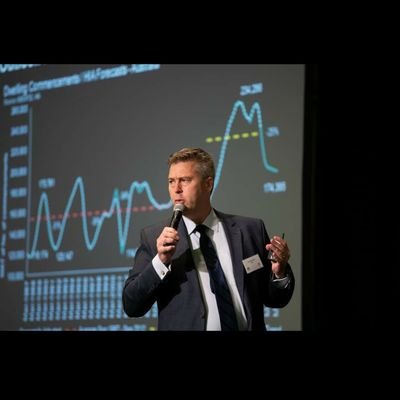Low volume of home building but labour shortages linger
ONGOING SHORTAGES of skilled building tradespeople are not the result of a booming housing construction market, according to the Housing Industry Association (HIA). The last two years of new home commencements have been among the weakest in the past decade.
“Australia has just seen its two weakest years of new home commencements in over a decade, meaning these ongoing shortages of skilled trades are not being caused by home building activity,” HIA chief economist Tim Reardon said.
The HIA Trades Report released today provides a quarterly review of the availability of skilled trades and any demand pressures on trades operating in the residential building industry. 
“Despite the low volume of home building, skills shortages are persisting on the back of labour demands from other construction sectors and the wider economy,” Mr Reardon said.
“Excluding the extremes of the pandemic, one would have to go back to before the GFC (global financial crisis) to find trades shortages as acute as they are now.
“Home building is set to gain momentum across Australia as interest rates fall, and this will further add to demand for skilled labour. Activity has already been increasing in Western Australia, Queensland and South Australia on the back of strong population growth, low unemployment, tight rental markets and rising prices, and recovering real incomes,” Mr Reardon said.
“The shortage of skilled trades across Australia persists in every capital city and region.
“An increase in home building will further add to demand for skilled labour and put further upward pressure on labour prices.
“Despite the expected increase in home building, commencements will remain well below those necessary to achieve 1.2 million homes over five years.
“Home building activity has contracted significantly in the Sydney basin, Melbourne and the ACT, but even this has not been sufficient to arrest the rise in ‘trades prices’ nationally.
“The result of these shortages is that the price of trades has increased again by 5.5 percent in the 12 months to March 2025, compared with the broader Australian wage growth closer to 3 percent,” he said.
“Reforms to skilled migration, including a dedicated construction visa, are needed to attract skilled tradespeople from overseas during cyclical peaks in activity.
“Of the 166,830 temporary skilled workers (Visa Subclass 482) in Australia at the end of 2024, only 4,229 were in home building trade occupations,” Mr Reardon said.
“Over the medium-to-long term, a domestic workforce development strategy is required that promotes careers in construction to students, recent leavers and Australians more broadly, male and female, young and old.
“Greater support is also needed for apprentices, the public and private organisations that train them, and the businesses that provide them with supervision and on-site experience,” Mr Reardon said.

HIA analysis
Every market continues to have a shortage of skilled trades, with the worst shortages tending to be in the markets showing the strongest improvements in home building activity. Perth (-0.84) and Brisbane (-0.83) had the most acute shortages among the capital cities, with Sydney (-0.39), Adelaide (-0.38) and Melbourne (-0.35) more modest. Across the regions, the most acute shortage was in regional South Australia (-0.67), followed by regional Victoria (-0.55), regional Western Australia (-0.49), and regional New South Wales (-0.27), with regional Queensland (-0.04) very close to neutral.
By trade, two occupations emerged with a surplus of trades for the first time since September 2020: electrical (+0.05) and plumbing (+0.03). Site preparation is also continuing to improve, with a modest shortage of -0.14, while the readings were more acute for other trades, especially bricklaying (-0.93) and ceramic tiling (-0.91).
ends

 How to resolve AdBlock issue?
How to resolve AdBlock issue?  THE Council of Small Business Organisations Australia (COSBOA) is calling for bipartisan support for a government-led post-election Small Business Forum (the Forum).
THE Council of Small Business Organisations Australia (COSBOA) is calling for bipartisan support for a government-led post-election Small Business Forum (the Forum).



